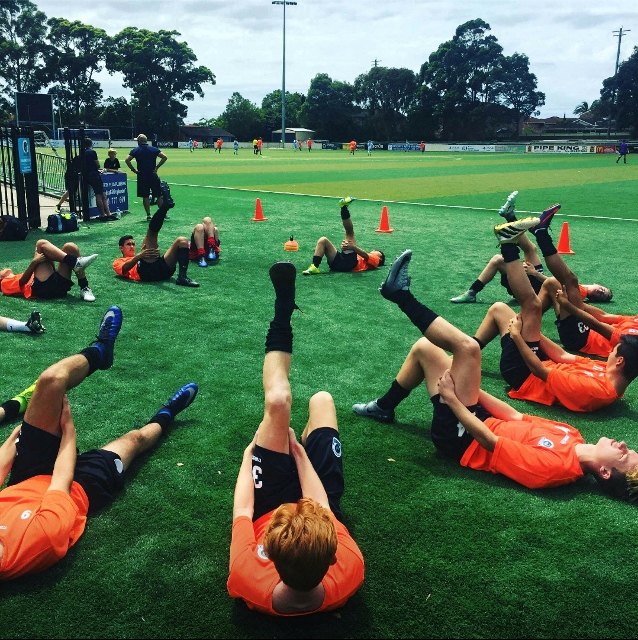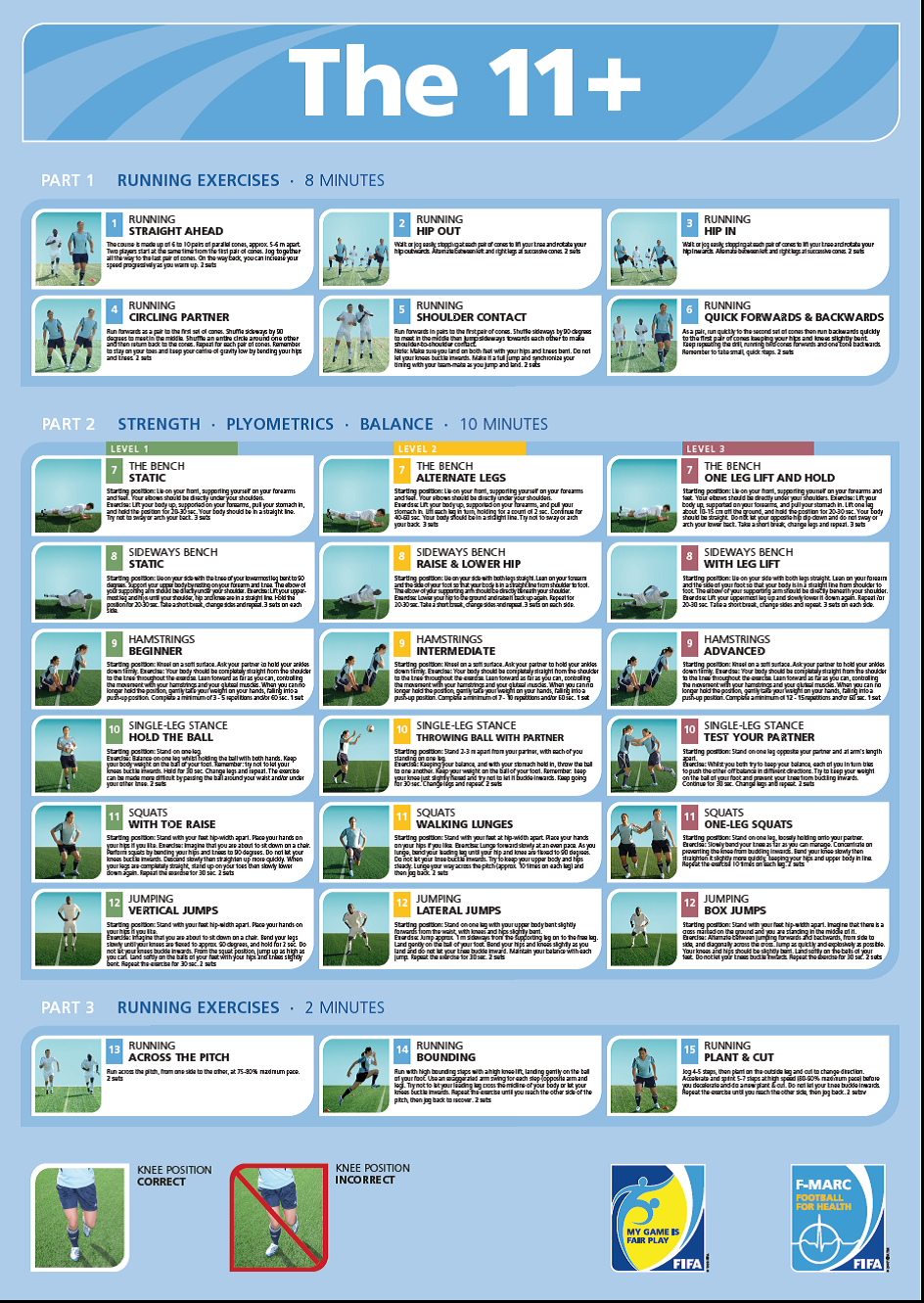Are injury prevention programs all they crack up to be?
Injury prevention programs (IPP) or performance enhancement programs (PEP) have become quite the vogue topic in physiotherapy and exercise science over the last 12 -18 months but what are they all about?
Sport and exercise has been shown to have great benefits physically and mentally, with the aim to not only improve health but reduce risk of disease. However, with increased exposure to sport there comes the negative side of injury. Whether it be football or netball, boot camps or cross fit people continue to get injured.
Direction change sports such as football, AFL and netball have all been shown to have higher incidence of ligament damage, such as a sprained ankle or ruptured ACL as well as higher incidence of muscle injuries. In fact, research shows that there are two very high-risk groups to ACL injury. These are females aged 14-18 years and males aged 19-25 years. At Jubilee Sports Physiotherapy we are unfortunately seeing these trends.
Now we are not trying to scare people and stop them playing sport, rather the opposite. We want to encourage people to continue playing the sports they love. But can we make ourselves less likely to get injured? The short answer is Yes! And this is where injury prevention programs come in.
What is an injury prevention program?
An IPP is a group of exercises designed to prepare the body mentally and physically for performance with the aim of reducing the incidence and severity of injury. As the saying goes ‘Prevention is better than Cure.’ These programs are designed specifically for the chosen sport with focus on training specific muscle groups and movement patterns required. They are also designed to improve neuromuscular control. Neuromuscular control is the unconscious trained response of a muscle to a signal regarding dynamic joint stability.
These programs are generally performed two to three times per week as part of the warm-up during a normal training session or game. They involve very little equipment, other than those needed during the training session and can be performed in a short period of time, usually 15-20 minutes.
IPP have been designed for various sports including football (soccer), AFL and netball.
Do Injury Prevention Programs work?
Over the last 5- 10 years various programs have been designed to help with injury reduction. One of the most commonly known programs is the FIFA 11+. This is a program created by a group of FIFA medical experts designed to specifically warm-up and prepare footballers (soccer) for a game. It has created different versions to cater to adolescents, adults and referees. The FIFA 11+ is to be performed 2-3 times per week as the warm-up before training and games.
Recent studies on the effectiveness of the FIFA 11+ have come back quite positive. Teams that performed the FIFA 11+ at least twice per week had 37% fewer training injuries and 29% fewer match injuries. Severe Injuries were reduced by almost 50%. Studies have also shown that the FIFA 11+ can reduce the risk of ACL injury by more than 45%. In a social/amateur men’s AFL team, a twice weekly IPP performed during pre-season and throughout the regular season saw a reduction in total knee injuries by 50% and all lower limb injuries by 22%.
Injury prevention programs aren’t only used to prevent injury they enhance performance too, which can be a great selling point to the adolescent athletes. As mentioned earlier, 14- 18-year females and 19-25-year males are at high risk to ACL injury but it is often these age groups who think are bulletproof, making their compliance low. This is where the performance enhancement program (PEP) comes into play. If the athlete can see that they will run faster or jump higher there is a greater chance they will want to perform the programs.
The FIFA 11+ has been shown to significantly improve balance, jumping and sprint performance measures. Furthermore, in a study of adolescent netball players, a 6-week Injury Prevention Program improved speed, agility, power and balance outcome measures verse those that didn’t complete the program (Hopper et al, 2017).
The research and statistics don’t lie. Injury prevention programs not only help to reduce injury across all sports they also improve performance.
If you would like more information on injury prevention programs for yourself or your club please feel free to contact Jubilee on (02) 9540 9400.
























